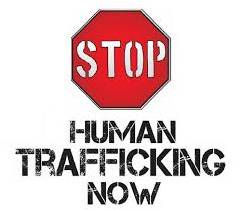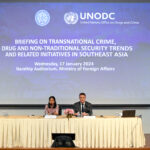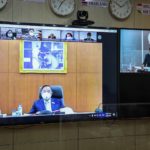
The Ministry of Foreign Affairs expressed deep disappointment last week with the slant and conclusions of a report on human trafficking in Thailand’s fishing industry, issued by the Environmental Justice Foundation, a UK-based nongovernmental organization.
The report Broken Promises: Why Thailand should stay on Tier 3 in the 2015 U.S. Trafficking in Persons report, alleges Thailand of taking insufficient actions to combat trafficking in persons, including with regard to unregulated labor brokers, victim identification, and protection of victims. But in presenting several cases of trafficking or labor abuse, EJF creates the impression that the problems are more widespread than they are.
Studies conducted by the ILO indicate that a minority in the fishing industry engages in these practices. Thailand’s private sector fishing fleet is large and not yet fully or adequately regulated, and so, admittedly, even a minority committing abuses will produce significant numbers of cases.
Viewing that one case of trafficking or abuse is one too many, and that more needs to be done, Prime Minister Prayut Chan-o-cha has declared “zero tolerance” to human trafficking and its nurturing conditions. Since assuming power last May, his administration has taken a range of actions on all these issues and more.
Laws and regulations have been strengthened, including with regard to ensuring improved working conditions on fishing vessels. Also, Thai authorities arrested 107 illegal brokers and pressed legal action against 156 others in 2014. 696 fishing vessels were inspected 10,426 fishery workers interviewed as well as compliance with labor laws. This year, the Ministry of Labor is cooperating with the Department of Fisheries, to establish 26 “Port-In – Port Out” Vessel-Inspection Centers in 22 coastal provinces. These centers, once integrated with the database on fishing vessel registration and fishing licensing, will enhance the effectiveness of labor inspection and potential victim identification.
Currently, Thai authorities have adopted a multi-disciplinary approach to victim identification involving not only law enforcement officers but also social workers, psychological experts and, where needed, NGOs and international organizations’ representatives, in the process. They are also working with the International Labor Organization (ILO) and others to build and improve the capacity further.
In 2014, 595 victims of human trafficking – both Thais and foreigners – were identified, and 303 were placed in 9 shelters run by the Ministry of Social Development and Human Security. Job opportunity services are provided to victims in the shelters, as well as a range of services including those for child victims, medical care and legal counsel services.
Arrests and investigations have been made upon the police and government officials accused of trafficking. Fighting corruption is one of the current government’s policy priorities.
But the problem of human trafficking including in the fishing industry is decades old and “complex” according to the ILO, and tackling it “will not be easy,” according to the International Organization for Migration (IOM), both United Nations agencies.
Like efforts to address poverty, drug trafficking, corruption, wildlife smuggling and other deep-seated social ills and transnational crimes, the fight against human trafficking never truly ends and requires firm political commitment and frequent adjustments in strategies to respond to imperfect solutions, changing conditions and new tactics by criminals.
The bar for whether or not a country should remain on Tier 3 of the Department of State’s Trafficking in Persons report is not whether trafficking exists and to what levels, but whether a government is making sincere efforts to stop it. Thailand’s government is sincere in working to end trafficking, and its increased commitment has been cited by the ILO. This is a fight Thailand has willingly taken up. Its government is engaged in this fight not just because of a State Department report, but because it is the right thing to do.
For 2015, the Thai government has more than doubled the budget for anti-trafficking activities in order to strengthen all line agencies’ capacity, including increase in personnel.
Efforts have also been made to engage other sectors more closely in the fight against trafficking in persons. Last week, the Ministry of Foreign Affairs, which leads the work on partnership, held a consultative meeting with the private sector. It will meet with NGO representatives this week to discuss strategies and ways to enhance cooperation in preventing and solving the issue.
Visit http://www.thaianti-humantraffickingaction.org for more information on Thailand’s anti-human trafficking actions.


